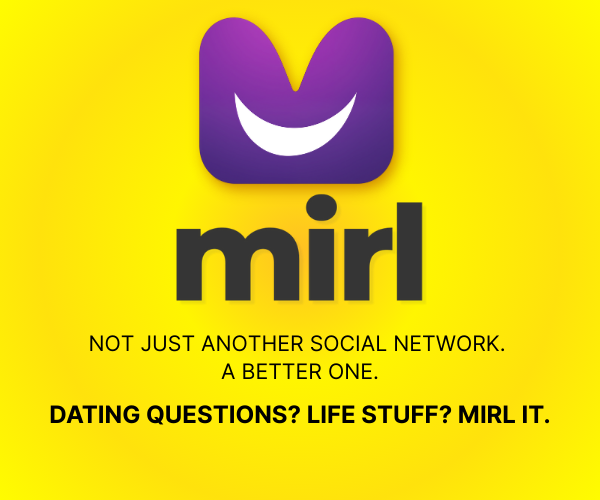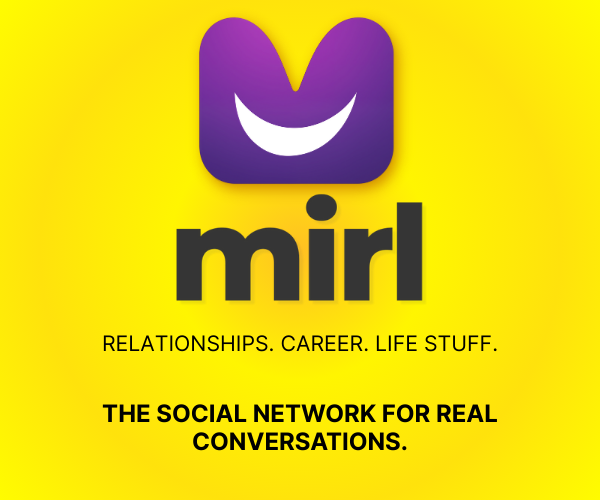Catfishing: What It Is, Why They Catfish & 29 Signs and Ways to Handle Them

Catfishing has been in the news recently. What do you think about it? Is it fine or is it a form of deceit? Learn how to spot it ahead of time!
Catfishing is every online dater’s worst nightmare. You spend months talking to a person that you feel like you connect with on a variety of levels, you devote hours to this person, divulge personal and even painful information, and they still accept you. You think about them all the time and finally feel like you could fall in love with someone you’ve never actually met face to face.
The next thing you know, they start acting distant or pushing you away when you bring up meeting in person or talking via video calling.
Ultimately, you are crushed and utterly deceived when the entire thing blows up in your face. You realize the person you thought you knew was someone else entirely.
And then it dawns on you… you just got catfished! [Read: Toxic people – 48 warning signs and the best ways to deal with them]
What is catfishing?
Simply put, being catfished is like being deceived online. But the person lying to you isn’t just lying about trivial stuff like what they look like or where they live. It’s like they’re actually living a second life online that’s markedly different from the one they’re living in real life.
The person you’ve been slowly falling in love with online may present themselves to be a charming twenty-something who works for a hip little record store.
However, they’re actually an incredibly insecure forty-something who’s just looking to get close enough to you to get you to send them nude photos! Creepy, right? [Read: Things you need to know before stripping for a photo]
The effects and dangers of catfishing
For the person who’s been catfished, the whole experience can be very damaging. It’s especially problematic if they start to fall in love with this person they assume is real.
Once they find out that it’s nothing more than a deception it can affect how they trust people around them and their view of love.
The person doing the catfishing obviously has deeper problems than they’re willing to admit. The whole experience is extremely negative and nothing good ever comes out of it.
It’s also extremely dangerous. If you don’t know who you’re speaking to and you somehow find yourself coerced into sending explicit photographs or messages, who is this person? How can you be sure those images are safe? [Read: 16 secrets to manipulate a manipulator and make them feel powerless]
Why do people catfish?
There is a myriad of reasons why a person might decide to catfish online. Obviously, they’re all pretty negative but some are worse than others.
1. Poor self-esteem
If a person has no confidence in themselves, they may choose to create a persona that reflects everything they wish they were in personality and looks.
2. Depression and/or anxiety
A person suffering from depression and/or anxiety might choose to catfish as a distraction, or because it’s all linked to their low self-esteem. [Read: Signs of low self-esteem and 5 ways to increase it]
3. To hide their identity
This is one of the most dangerous issues with catfishing. They’re hiding who they are, which means they’re hiding their age.
In addition, they could be someone who is known to be dangerous and they’re pretending to be someone else entirely.
4. Targeted revenge
A person might catfish to get revenge on someone who hurt them in the past.
5. Targeted harassment
Similar to revenge, catfishing may be to try and harass a specific person. [Read: Emotional abuse – what it is and 39 signs this relationship is breaking you]
6. To explore their sexuality
Catfishing essentially means pretending to be someone else and when a person does that, they’re able to explore a reality that isn’t theirs. That could also include their sexuality.
How to spot a catfish
It’s all too easy to be naïve and believe that being a good person who values honesty will also attract those types of people to you.
While it’s not always a flaw to want to see the best in others, it’s also the quickest way to overlook red flags and end up disappointed.
Being catfished by a person you trusted is a slap of reality. It serves as a reminder that not everyone will be honest with you just because you’re honest with them. [Read: Tips to avoid online creeps and their creepy ways]
But if you pour your attention into learning how to spot a catfish, it won’t happen again. So, what are the tell-tale signs of being duped? And how can you hunt down your online lover to find out if they’re actually a liar?
Here are the main signs that the person you’re talking to is catfishing.
1. Google their name and email address
One of the easiest ways to track down your online lover is to do a Google search of their full name or their email address. There may be no results, or there may be pages full!
Make sure you put quotation marks around your search word, as this will ensure only the specific word, e-mail, or phrase you searched will come up in the results. [Read: 42 signs and ways to see manipulative behavior and stop being used by people]
2. Pay attention to details in photos
If you’re truly suspicious that your online lover is too good to be true, have a good look at their image gallery.
Do they never seem to age in their photos? If their gallery is real, they’ve likely had social media for years now, and their gallery should reflect that: aging, different hair lengths and color, as well as having friends in photos.
Check not only for friends in photos but also see if the friends are tagged. If their whole gallery is just a collection of selfies, with no other people present, then your online crush is either a narcissist or a fake. [Read: Attention whore – what it is, 23 signs, and secrets to handle an attention seeker]
3. Do a Google image search for their photos
The majority of catfishers don’t use their original photos. They prefer to use Facebook or Instagram albums from an unknown model or even photos from complete strangers because, obviously, they don’t want to use their real face.
To do a Google search, simply drag the photo in question into Google Image Search and see what comes up.
Odds are, if your online lover is faking, you’ll see their image come up on other websites and under different names. [Read: How to learn from the rejections you’ve faced]
4. Check out their friends list
How many people are on your crush’s friends list? There’s a delicate balance of the number of friends your crush can have without seeming suspicious!
If your online love only has 15-30 friends, yikes! If your friend has 1000+ friends? Even bigger yikes! So, consider yourself in the safe zone if the person you’re pursuing online has an average number of friends.
Also, check out the people on this person’s friends list. Are they active on their social media? Do they only log on or make posts around the same time that your crush does? Do they have lively photo albums, with tagged friends and a healthy amount of interaction on their walls?
Keep your eyes open to suspicious friend activity! [Read: Should you try online dating? The guide to decide if it’s for you]
5. Check out their interactions with their ‘friends’
Many social media users will often have conversations through the comments section of a post. Real friends who post real comments on posts will usually mention inside jokes or things that they often do together, as well as the occasional “I miss you” or “let’s hang out.”
On the other hand, people who comment on a catfish’s posts will be more inclined to just leave a quick comment or compliment. There are no hints that the commenters have ever interacted with the owner of the profile.
6. A fishy job often means a catfish is around
Does your online lover have a suspicious job? This is a common trait of online fakers. Common catfish jobs include models, music producers, actors, photographers, artists, and even freelancers.
If your online crush doesn’t seem to be affiliated with any company that you can Google, it may mean that they’re faking their job to lead people on, including you. [Read: Types of liars, 15 types of lies they often use, and ways to deal with them]
7. Have you ever spoken over the phone or video call?
If your crush doesn’t know how to Skype or refuses to talk over the phone, you definitely have a scammer on your hands.
There’s no way a young person using social media doesn’t have a camera or doesn’t know how to use at least one video chat application.
8. Are they asking for money or gifts?
There’s a fine line between catfishing and online scamming. If your crush is asking you for money to pay phone bills, rent, groceries, or if they are hinting at or blatantly asking for expensive gifts, then you not just have a catfish, but also a giant user on your hands!
Block! Delete! [Read: Signs to know if you’re being used for sex or money]
9. They tell ridiculous stories to avoid meeting
Are you and your catfish living in the same area, yet you haven’t met yet? Many come up with elaborate stories as reasons not to meet you, such as getting into a car accident, losing a loved one, variations of either themselves or their loved ones falling victim to cancer, or other more outrageous lies.
Watch out for flimsy or over-the-top excuses!
10. They avoid showing their face
If you do happen to get them on a video call, they will not show you their face. It’s very unlikely that you’ll ever get to the point, but if by some miraculous reason you do, you’ll see that they use a silly filter or they make up an excuse about having a huge spot on their nose.
Again, ridiculous excuses! [Read: Pathological liar – what causes it and 55 signs and ways to help them change]
11. Their story just seems too good to be true
If you’re listening to a story that sounds like it came out of a Hollywood blockbuster, that’s probably because it did. Most people’s lives and jobs aren’t all that glamorous and even if they are, they have normal sides too.
If this person only likes to give you the ‘too good to be true’ treatment, that’s because they’re lying.
12. They are extremely romantic right away
This person isn’t interested in genuinely getting to know you; they just want to lead you on. So, many catfish like to ‘love bomb,’ which means they’ll bombard you with romantic messages and affection to get you hooked and leave you wanting more.
If from the get-go they’re super romantic and start telling you how they want to have a future with you, be on your guard. In fact, even better, delete! [Read: Love bombing – what it is, how it works, and 21 signs you’re being manipulated]
13. Ask questions that require knowledge
Ask them about restaurants in the town they say they’re from. Or ask them intricate details about their job. You’ll probably notice they go offline and then come back with an excuse to distract you from your questioning, or they’ll tie themselves up in knots trying to answer you.
If they give you answers that don’t line up with what you know to be true, you’re onto them. [Read: Why people fall for narcissists and the secrets that make them so addictive]
Dealing with catfishing
Now you know how to spot a catfish, what can you do about it? How can you handle this difficult and very awkward situation?
Well, the most obvious thing to say is you should delete them and move on, but life isn’t that simple. By the time you start to suspect that you’re dealing with a catfish, you might have become attached to them or even fallen in love. That’s exactly what they want.
So, if you’re suspicious, or you’re a little untrusting of what you’re reading/seeing, follow these tips. [Read: Why do people lie in relationships? The reasons why we fib]
Oversharing is a catfish’s aim, but that doesn’t mean you need to overshare right back. Don’t give away too much about your life and who you are in general. The catfish will feed off of whatever you tell them and tailor their stories to that information.
Not sharing will stop you from getting too attached. [Read: Why social media is killing your relationship]
2. Don’t judge a book by its cover
In today’s world of Photoshop, Instagram filters, and all kinds of editing programs that can manipulate images, it’s really not so difficult for someone to portray an overly flattering image to the online world. A catfish will only show you what they want you to believe, not who they really are.
Online dating sites are filled with profiles of blurry headshots or faceless pics of 6 packs or bikini bods. Some pictures are actually stolen from other real people’s profiles, and these are the worst kinds of deception.
If the person you’re talking to looks like they walked right out of GQ or a Victoria’s Secret catalog, they actually might be fake. [Read: Tips to avoid online creeps and their creeptastic ways]
3. Don’t put all your eggs in one basket
The chances of this person being your soulmate could be real or not. The great thing about online dating is that you don’t have to commit to any one person before getting to know them, both online and in person.
4. Watch out for obvious red flags
Only talking at certain times of the day, only body pics, fewer pictures, reluctance to engage in video chat or talk on the phone, hesitance to meet in person but seemingly interested; these are some of the biggest red flags of the online dating world.
If the person you’re talking to does any of these things, bail out as soon as you can! [Read: 31 red flags in a man who’s fake-nice and will only break your heart]
5. Don’t rely on messaging alone
It’s best to get them to talk on the phone and have a video chat before spending months speaking to someone who could be hiding behind a false image. Skype, FaceTime, or Zoom are the preferred methods of being able to see the person you are talking to.
If they decline, you can expect that something fishy is going on, regardless of what excuse they might give you. [Confession: I used a dating site without a photo and this happened!]
6. Catch them off guard
You can choose to call them randomly while you’re chatting to see if they pick up. If they don’t, then that’s a huge red flag. If they pass the random call test, ask them for a photo holding a specific item or doing something specific.
This will prove whether or not the photos they send you are genuine, and not just photos of random people they found online.
7. Appeal to their morality
This is a long shot, particularly if the person you’re talking to is a pro at deception. But either way, honesty is still the best policy—it’s worth a try to make them feel guilty for lying or deceiving you.
You can mention that you hope they’re the real deal because you’ve been nothing but honest this whole time. [Read: Annoying and inconvenient online dating problems you have to face]
8. Always keep your safety in mind
Whatever you refuse to reveal to a person you run into on the street should be the same information you refuse to divulge to anyone you’re talking to online.
You never know what they might do with information such as where you live, where you work, who your friends are, and other information that they can use to stalk you, or worse, harm you. [Read: The important do’s and don’ts of online dating]
9. Remember, if it seems too good to be true, it probably is
If you find yourself talking to someone who fits every criterion of your dream partner, you should be jumping for joy, right? WRONG. The person catfishing you is trying to gain your trust by being the partner of your dreams.
Don’t fall for it! Instead, ensure that this person is who they portray themselves to be before you go off and plan your life together. [Read: Why online dating is more terrifying than a horror film]
10. Hire a private investigator
If you really want to get to the bottom of whether this person is catfishing you and who they really are, you could go all out and hire a private investigator. However, do bear in mind that this isn’t a low-cost service and question whether you can find this out for yourself.
Trust your instincts!
What should you do if you get catfished?
While we don’t wish for you to find more catfish to practice your sleuthing skills on, it’s always good to know that the more deceptive people you run into, the better you become at weeding them out. After a while, you’ll only spend your time and energy on people who are genuine with you.
It’s upsetting to realize that the person you’ve been ‘getting to know’ isn’t real and that they’ve been deceiving you all along. Remember that this says a whole lot about them and nothing about you.
As hard as it may be, you have to chalk it up to experience and move on. Focus on yourself for a while and lean on your friends and family for support.
[Read: 46 secrets to mend a broken heart, heal and feel happy and whole again]
Getting catfished is just one of the many not-so-fun experiences you may have when you try online dating. But once you learn how to spot and avoid them, your experiences will be much more rewarding!



















